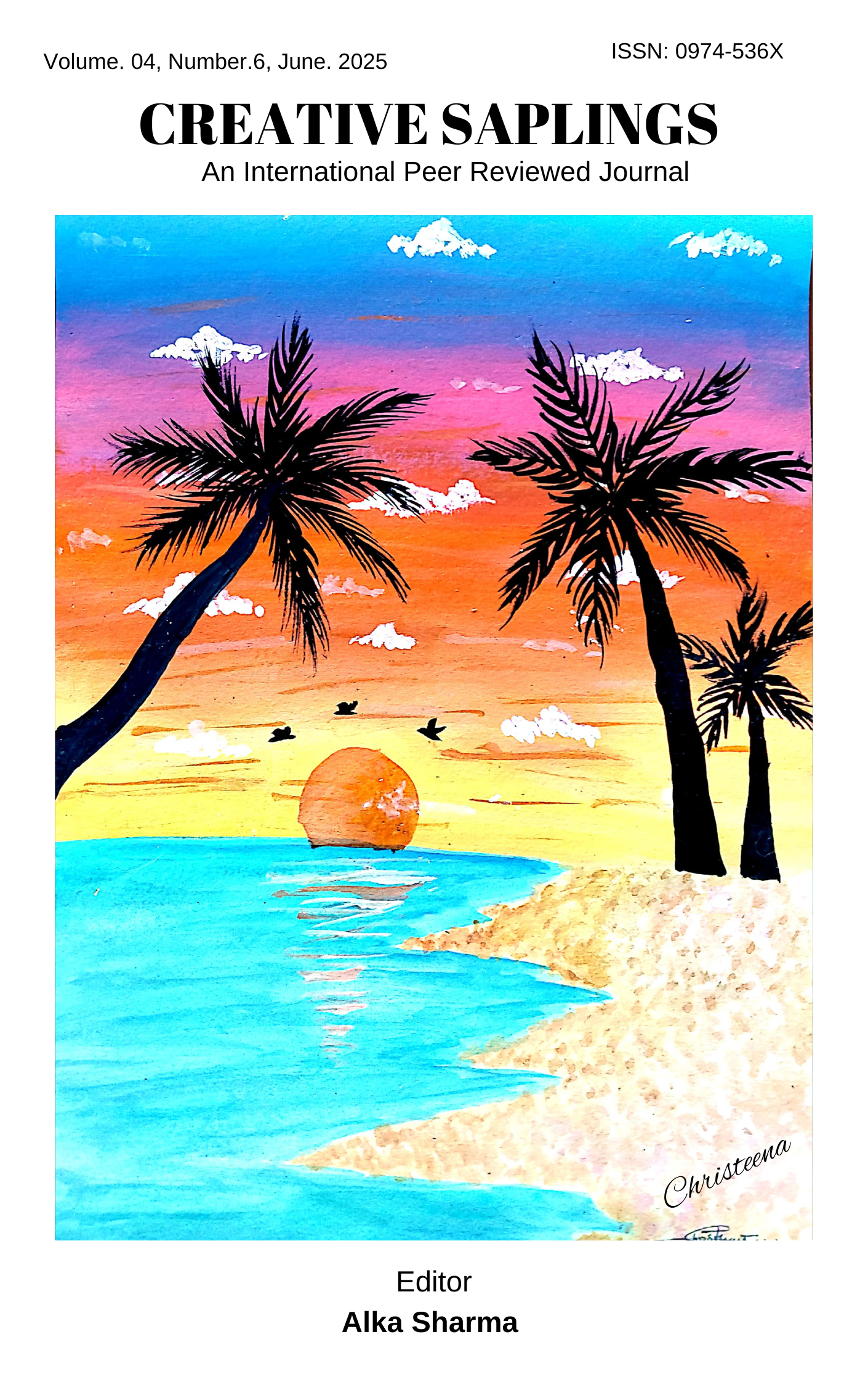Activity Segregation: Disrupting Snail-Sense Feminist Consciousness in Akachi Adimora-Ezeigbo’s Plays
DOI:
https://doi.org/10.56062//gtrs.2025.4.06.982Keywords:
Activity Segregation, Snail-Sense feminism, plays, gender studies, African literatureAbstract
Extant studies on Akachi Adimora-Ezeigbo’s plays are mostly preoccupied with the female characters’ revolt against and liberation from patriarchy and traditional norms that undermine their rights in the African setting. This study dissents from attempts to conclude that the female characters achieve freedom from the other sex and debilitating tradition because of their feminist trait. The paper contends that the concept of activity segregation provides ephemeral conditions for the women to organize and rage against exploitative male folk; when such enabling environment is non-existent, the females are inclined to accept patriarchal tendencies and socio-cultural realities in the African world and this would make the sustenance of their liberation impossible. Using the snail-sense feminist theory, the study embarks on qualitative and introspective research. It examines how momentary spatial parting of female and male genders temporarily fuels what has been misconstrued by some critics as snail-sense feminist consciousness in Akachi Adimora-Ezeigbo’s plays, Hands That Crush Stone and Barmaid and the Witches of Izunga. In attempting to disrupt the stance of existing researches, the researcher randomly selects relevant characters, dialogues/language, situations and settings from the two play texts and analyzes them against the backdrop of the assumptions of snail-sense Afro-feminist strain. The strain under-explores the tendency for African women to embrace their gender roles and accept their conditions of living in the absence enabling environment for them to revolt against their perceived subjugation by the male-folk. The study finds that the female characters in the plays only seize the opportunity of social distancing from the males to launch their liberation bid, they fail to confront the male in the absence of action space. Thus, the researcher challenges the reliance on snail-sense feminist streak by previous studies on the plays to arrive at the conclusion that the female characters succeed in their revolt. That the women slowly act as snails, which are never as aggressive as the angered gender, to reach their goals does not suggest their total success in the battle of the sexes. Freedom from patriarchy and tradition continues to elude them.
Downloads
References
Adimora-Ezeigbo, Akachi . Gender Issues in Nigeria: A Feminine Perspective. Lagos: Vista Books, 1996.
----------------------------. Snail-Sense Feminism: Building on an Indigenous Model. Monograph Series, University of Lagos, Number 17, April 2012.
African Feminism. www. en.wikipedia.org. Retrieved February 16, 2017.
Bhattachacharji, Shreya. “Re-Writing History/Re-Writing Women: Akachi-Adimora Ezeigbo’s The Last of the Strong Ones”, The Fiction of Akachi Adimora-Ezeigbo, Ed. Oloko Patrick, Lagos: African Cultural Institute, 2008,133-151.
Cuddon, J.A. The Penguin Dictionary of Literary Terms and Literary Theory. London: Penguin Books, 2013.
Ezenwanebe, Osita. “Issues in Women Libration Struggles in Contemporary Nigeria: A Study of Akachi Adimora-Ezeigbo’s Hands That Crush Stone. Journal of International Women Studies, Vol.16, No.3, Article 17, July 2015. www.go.gale.com. Accessed October 16, 2024.Falola, Toyin. Literary Imaginations and Nation Building in Nigeria
since 1914. Keynote Address at the Association of Nigerian Authors Annual International Convention, Akure, November 8, 2013.Ikekeonwu, Clara Language and Gender in Nigeria: Perception, Patterns and Prospects.46th Inaugural Lecture: University of Nigeria, May 7, 2009.
Iwuchukwu, Onyeka- Revolt and Snail-sense Feminism in Akachi Adimora-Ezeigbo’s Plays. New Perspectives on a Literary Enigma: A Festschrift in Honour of Professor Theodora Akachi Adimora-Ezeigbo, Eds. Adedu, Emmanuel A. and Onuora Benedict Nweke, Ibadan: Ibadan UP, 2014, pp. 276- 297.
Merriam-Webster’s Encyclopedia of Literature. Springfield/Massachusetts: Merriam-Webster Incorporated Publishers, 1995.
Muo, Adaobi. “Biographical Citation and List of Publications of Professor Akachi Adimora-Ezeigbo.” New Perspectives on a Literary Enigma: A Festschrift in Honour of Professor Theodora Akachi Adimora-Ezeigbo, Eds. Adedu, Emmanuel A. and Onuora B. Nweke, Ibadan: U of I., 2014, pp. 380-396.
Newell, Stephanie. “The Past in the Present; Adimora-Ezeigbo’s Woman-Centred Frameworks.” The Fiction of Akachi Adimora-Ezeigbo, Ed. Oloko Patrick, Lagos: African Cultural Institute, 2008, pp. 88-102.
Nnolim, Charles E. Introduction. Akachi Adimora-Ezeigbo: Life and Literature edited by Ezechi Onyerionwu. Ibadan, University Press, 2017.
Nweke, Onuora B. “Righting the Past, Writing the Future: the New Woman in the Short Stories of Akachi Adimora-Ezeigbo”, The Fiction of Akachi Adimora-Ezeigbo, Ed. Oloko Patrick, Lagos: African Cultural Institute, 2008, pp. 209-223.
Obafemi, Olu. “‘My Snail-sense Feminist Theory Accommodates the Men folk”’, Interview with Akachi Ezeigbo, Nigerian Literature Today: A Journal of Contemporary Nigerian Writing, No. l. Eds, Allwell Abalogu Onukaogu and Ezechi Onyerionyu, Inaugural Edition, First Quarter, March 2010, 28- 33.
Ogundipe, Molara. Indigenous and Contemporary Gender Concept and Issues in Africa: Implications for National Development. Lagos: Malthouse, 2007.
Ojukwu, Chinyelu – The Politics of Power and the Struggle for Self-Assertion: Tess Onwueme’s The Reign of Wazobia and Akachi Adimora-Ezeigbo’s Hands that Crush Stone I and Julie Oko’s Edewede New Perspectives on a Literary Enigma: A Festschrift in Honour of Professor Theodora Akachi Adimora-Ezeigbo, Eds. Adedu, Emmanuel A. and Onuora Benedict Nweke, Ibadan: Ibadan UP, 2014, pp. 315-335.
Onukaogu, Allwell Abalogu and Ezechi Onyerionwu. 21st Century Nigerian Literature: An Introductory Text. Ibadan: Kraft Books, 2009.
Quayson, Ato. “Feminism, Postcolonialism and the Contradictory Orders of Modernity”. African Literature: An Anthology of Criticism and Theory. Eds. Tejumola laniyan and Ato Quayson, Malden: Blackwell Publishing, 2007, pp. 585-591.
Showalter, Elaine. “Feminist Criticism in the Wilderness.” Modern Criticism and Theory: A Reader, Ed. David Lodge, London/New York: Longman Publishing, (1988) 1995, pp. 331-53.
Sylvester, Mnguember Vicky. Review of New Perspectives on a Literary Enigma: A Festschrift in Honour of Professor Theodora Akachi Adimora-Ezeigbo, Sunday Sun, December 21, 2014, p. 48.
Uko, Iniobong 1. “Transcending the Margins: New Directions in Women’s Writing” New Directions in African Literature, Vol. 25, 2006, pp. 82-93.
Downloads
Published
License
Copyright (c) 2025 Macpherson Okpara

This work is licensed under a Creative Commons Attribution-NonCommercial 4.0 International License.





